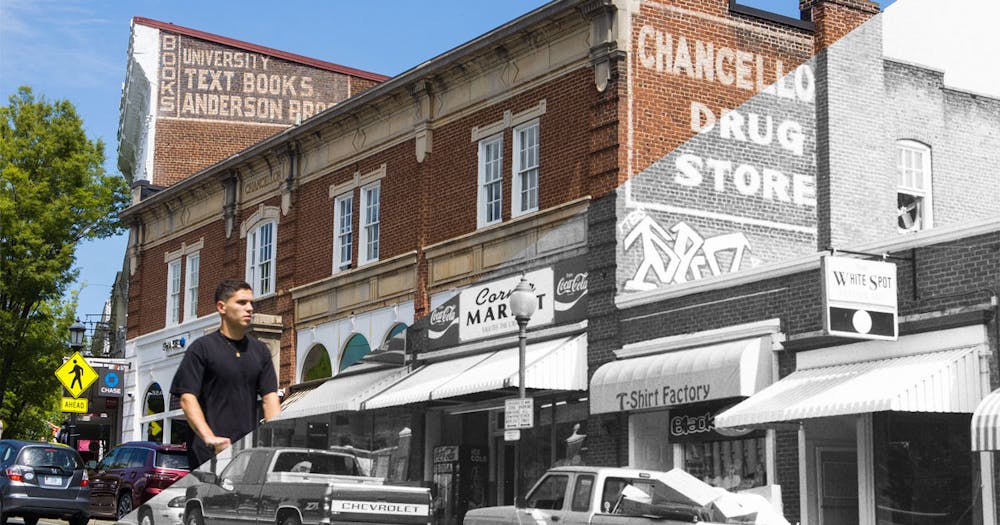The Corner is a hub of student social life at the University, and a primary point of intersection between students and the City of Charlottesville. It has always been known for its quaint collection of small businesses that endow the city of Charlottesville with a unique quality that separates it from other college towns. Unfortunately, over the past few years — and especially during the pandemic — independent small businesses are being replaced by large franchises. The growing presence of franchises and chain restaurants is destroying the sense of authenticity on the Corner — an authenticity that has long been cultivated by local businesses as gathering places for students of different backgrounds and interests. The introduction of generic chains only makes the Corner’s unique identity disappear. The University has a responsibility to repurpose its property on the Corner, such as the multipurpose space 1515, to help uplift the charm of small businesses so that future students can truly experience the town we have all come to love.
Over the past five years, the Corner has lost a worrying number of its local establishments. Many beloved student hangouts, for instance, have closed their doors, including Little John’s and The College Inn. Beyond this, the types of businesses operating on the Corner have taken a noticeable shift. For example, vape and tobacco shops have replaced long-time Corner establishments such as Cohn’s and The Juice Laundry. Vice is clearly more profitable than small-town charm. It is not just that tobacco shops remove the unique charm that once defined the Corner—the accessibility of these harmful vape and tobacco products to college students, many of whom are underage, raises a number of ethical issues — despite whatever system of age verification these businesses have in place, the ease of access undoubtedly correlates with underage use and access to these products.
This amounts to the destruction of the very features that made the Corner unique — a once intimate stretch of local businesses has turned into a soulless and banal atmosphere for endless consumption. For example, the new Raising Cane’s location is filled with bright fluorescent lights and vinyl floors, more reminiscent of the dining halls or a hospital canteen. Aesthetics aside, the sophisticated supply chains of larger businesses, such as Raising Cane’s, contribute to an unfair economic environment. When competing with much larger companies that can operate on razor-thin margins, small businesses often suffer losses in profit. In this way, the unfair economic environment created by the presence of national chains forces local businesses to shift their focus away from how they can benefit their community and towards cost-saving measures that allow them to survive.
The University and the City of Charlottesville have so far sat idly by over the last decade, taking no action as some of its most beloved establishments begin to crumble one by one. They seem to have no issue with large corporations taking the place of the small businesses that used to populate the Corner — seen most recently through the openings of Chipotle and Raising Canes, despite the fact that both franchises have other Charlottesville locations.
The University owns two pieces of property on the Corner — 1515 and the University Police Substation. While they do serve a distinct and important purpose for the University community, 1515 is currently not being used to its full potential as a student center. Its long history speaks to the importance of the Corner for student life at the University. However, it is now used primarily as a study space for students and a meeting place for clubs. Its location and intended purpose as a student space provide the perfect premise to increase student engagement in the wider Charlottesville community. The entire ground floor of 1515 could be converted into retail space for local businesses, either through a temporary pop-up model — where local businesses take turns utilizing the space to engage more directly with students — or for something more long term, where one or two specific businesses, emblematic of Charlottesville’s culture, could operate. This would allow struggling local businesses a new platform to sell their products, helping to save them from economic ruin.
While this will impact the amount of available study space for students, the re-opening of Alderman Library next semester will mean student traffic to locations such as 1515 can be substantially reduced. As it stands 1515 is under-utilized as a student space, meaning that a change in its use would benefit student life on the Corner tremendously. This would help the Corner stray from its current path towards banality, ultimately promoting continued cultivation of the authentic and diverse culture students bring to Charlottesville.
The Corner acts as an artery of economic and social engagement between the University and the wider Charlottesville community. What happened to the University’s desire to be a good neighbor? The University should want to protect the Corner and continue to cultivate a student experience that cannot be replicated elsewhere.
George Quillen is a Viewpoint Writer who writes about Econ, Business and Housing for The Cavalier Daily. He can be reached at opinion@cavalierdaily.com.







